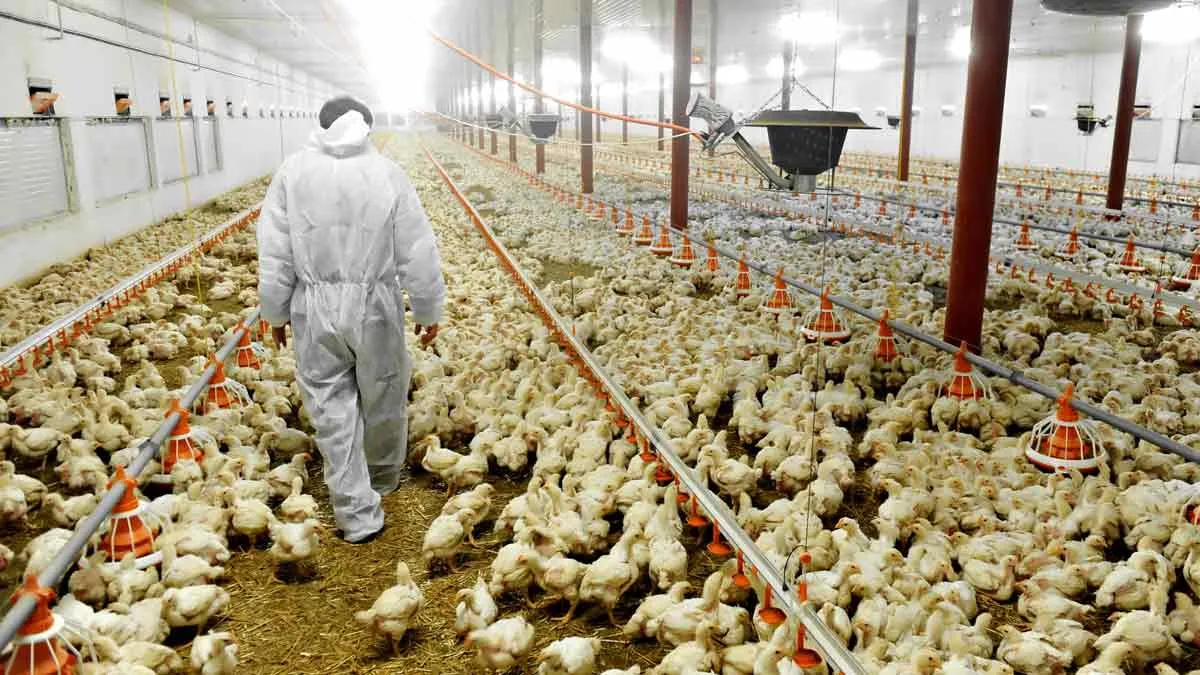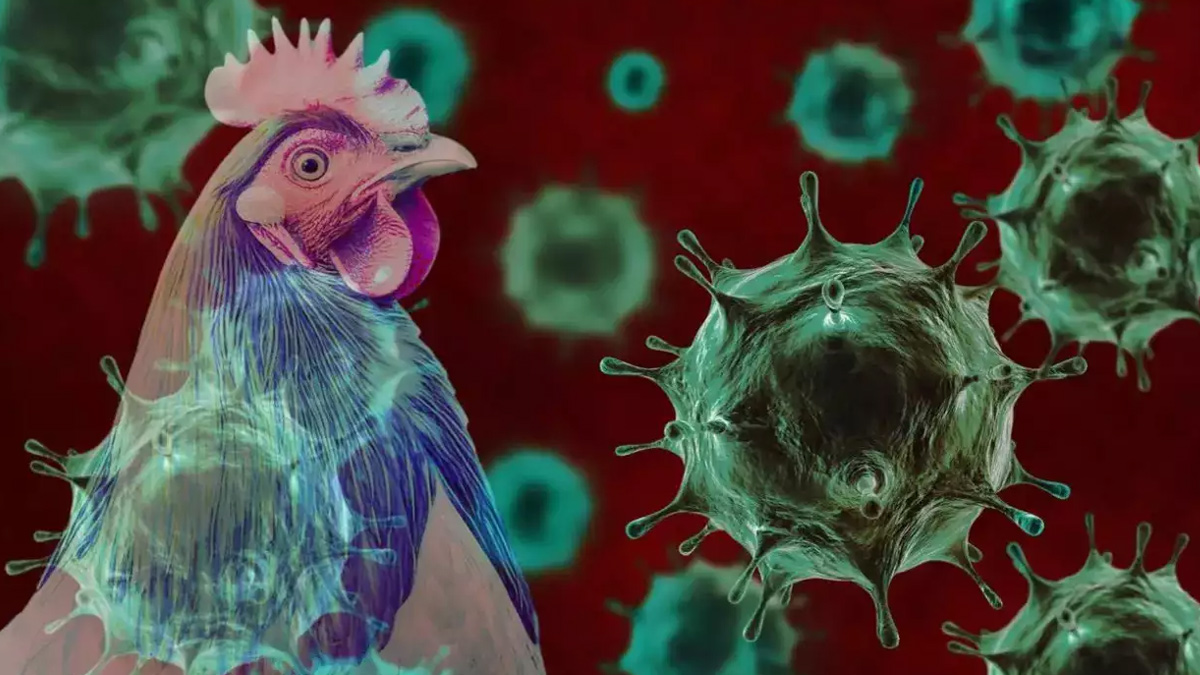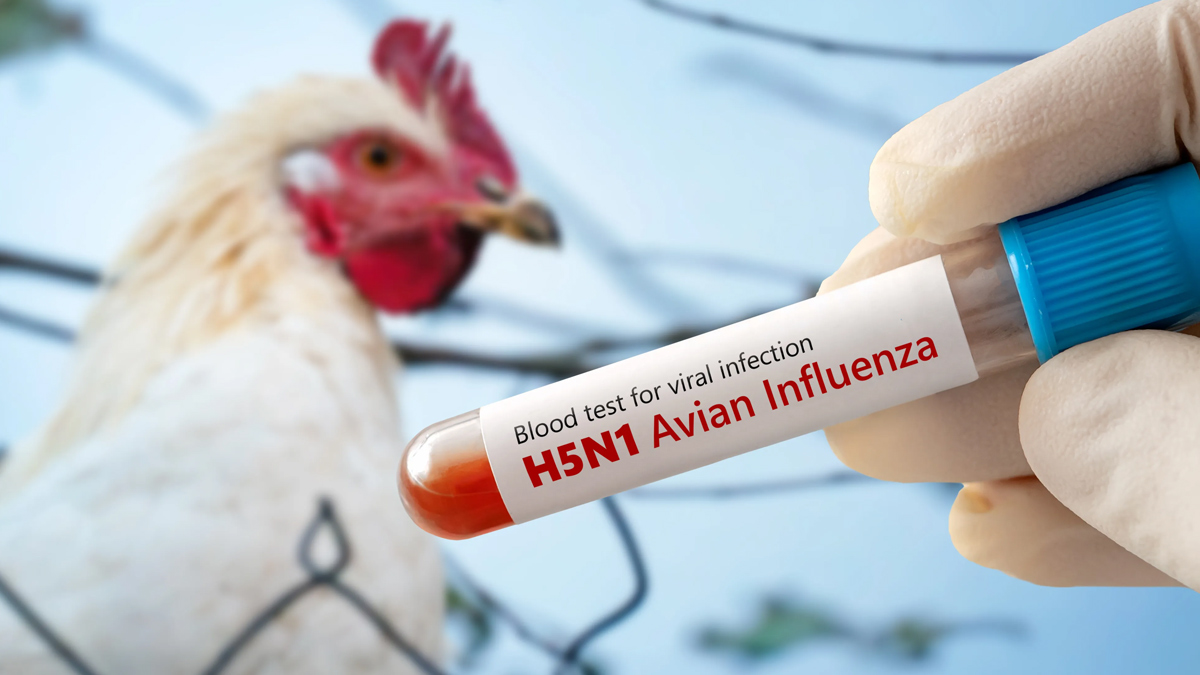
After years of dealing with the COVID-19 pandemic, the United States is now facing a new threat: the highly contagious H5N1 virus, also known as bird flu. Scientists monitoring the virus have raised alarms over its rapid evolution, which could potentially reduce the effectiveness of existing vaccines. This development has sparked concerns about a possible future pandemic.
Table of Content:-
A recent study published in eBioMedicine, part of The Lancet journal family, warns that the virus is mutating in ways that allow it to evade immune defences. Researchers have noted that these changes could increase the likelihood of human-to-human transmission, a scenario that would significantly elevate global health risks. The virus has already spread among wild birds, poultry, cattle, and even farmworkers, reinforcing the urgent need for new vaccines and preventive measures.

What Is H5N1 Bird Flu?
H5N1 is a subtype of the influenza A virus that primarily affects birds. Historically, human infections have been rare, but experts are now warning that recent mutations may enable the virus to infect humans more easily. This strain of bird flu has been responsible for multiple outbreaks in poultry populations worldwide and carries a high mortality rate when it infects humans.
Also Read: CDC Confirms Black-Legged Ticks Can Trigger Red Meat Allergy In Humans
How Does H5N1 Spread?
The primary mode of transmission is through direct contact with infected birds, contaminated surfaces, or respiratory droplets. Until recently, wild birds—especially migratory species—were believed to be the main carriers of the virus. However, scientists now fear that the transmission pathways may be broader than previously thought.
Farmworkers and others who work closely with poultry and livestock are particularly vulnerable. Infected birds shed the virus in their saliva, nasal secretions, and faeces, which can contaminate environments and lead to further spread. The Centers for Disease Control and Prevention (CDC) and the World Health Organization (WHO) are closely monitoring these developments and working with global health agencies to assess the risk.

Mutations Raise Alarm Over Human Transmission
One of the most concerning aspects of the H5N1 virus is its rapid mutation rate. Scientists studying the virus' genetic changes have found alterations that help it bypass immune responses, whether from prior infections or vaccinations. This ability to adapt makes it increasingly difficult to control the virus using current vaccine formulations.
Also Read: Wellness Trends That Might Be Doing More Harm Than Good
The study published on March 17 suggests that these mutations may enable the virus to spread more efficiently among mammals, which raises the possibility of human-to-human transmission. If such mutations become widespread, the risk of a new pandemic could become a reality.
Are Current Vaccines Effective?
Existing bird flu vaccines were designed based on older strains of the virus, which means they may not offer strong protection against newly mutated versions of H5N1. Scientists and vaccine manufacturers are now racing to develop updated formulations that can better target the evolving virus.

Health experts stress the importance of proactive measures, including increased surveillance, rapid testing, and vaccine stockpiling. The CDC has urged high-risk individuals, such as farmworkers and poultry industry employees, to take extra precautions, including wearing protective gear and maintaining hygiene practices to prevent infection.
Steps to Prevent a Potential Outbreak
With the risk of human transmission increasing, experts recommend the following precautions to curb the spread of H5N1:
- Avoid direct contact with sick or dead birds – If necessary, use gloves and masks when handling poultry.
- Practice good hygiene – Regular handwashing and sanitising surfaces can reduce the risk of contamination.
- Monitor symptoms – People exposed to potentially infected animals should seek medical attention if they develop flu-like symptoms such as fever, cough, or difficulty breathing.
- Stay informed – Follow updates from health agencies like the WHO and CDC to stay aware of potential outbreaks and vaccine developments.
Bottomline
The H5N1 bird flu virus is evolving at an alarming rate, raising serious concerns among health experts. While human infections remain relatively rare, the virus’s ability to mutate and evade immunity poses a growing threat. The need for new vaccines and strict biosecurity measures has never been more urgent. Governments and health organisations worldwide must act swiftly to prevent another global health crisis from emerging.
Also watch this video
Read Next
Bangladeshi Player Tamim Iqbal Suffers Heart Attack, Undergoes Angioplasty: Know About This Surgery
How we keep this article up to date:
We work with experts and keep a close eye on the latest in health and wellness. Whenever there is a new research or helpful information, we update our articles with accurate and useful advice.
Current Version
